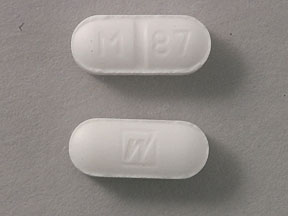Mytelase Disease Interactions
There are 3 disease interactions with Mytelase (ambenonium).
Cholinesterase inhibitor (applies to Mytelase) coronary artery disease
Major Potential Hazard, High plausibility. Applicable conditions: Ischemic Heart Disease
The use of cholinesterase inhibitors has been associated with a constriction of coronary arteries. Therapy with cholinesterase inhibitors should be administered cautiously in patients with coronary artery disease.
Cholinesterase inhibitor (applies to Mytelase) parkinsonism
Major Potential Hazard, High plausibility.
Cholinesterase inhibitors should be used with caution in patients with parkinsonism. Some of these drugs might be contraindicated in these patients (refer to specific prescribing information). Symptoms of Parkinson's disease may be exacerbated with the increase in cholinergic activity. Caregivers and patients should be advised.
Cholinesterase inhibitor (applies to Mytelase) hyperthyroidism
Moderate Potential Hazard, High plausibility.
Many of the manifestations of hyperthyroidism may be exacerbated by increased levels of acetylcholine produced by cholinesterase inhibitors. Therapy with cholinesterase inhibitors should be administered cautiously to patients with hyperthyroidism. Monitoring of thyroid levels is recommended.
Switch to professional interaction data
Mytelase drug interactions
There are 91 drug interactions with Mytelase (ambenonium).
More about Mytelase (ambenonium)
- Check interactions
- Compare alternatives
- Drug images
- Side effects
- Dosage information
- Drug class: cholinergic muscle stimulants
Related treatment guides
Drug Interaction Classification
| Highly clinically significant. Avoid combinations; the risk of the interaction outweighs the benefit. | |
| Moderately clinically significant. Usually avoid combinations; use it only under special circumstances. | |
| Minimally clinically significant. Minimize risk; assess risk and consider an alternative drug, take steps to circumvent the interaction risk and/or institute a monitoring plan. | |
| No interaction information available. |
See also:
Further information
Always consult your healthcare provider to ensure the information displayed on this page applies to your personal circumstances.


